During my time as a volunteer and researcher at the Bimini Biological Field Station (known as the Shark Lab) in Bimini, Bahamas, I met Katie “Kat” Gledhill, one of the coolest shark biologist I know. She was finishing her period of four years as a Lab Manager and unfortunately at that time I did not get the chance to get to know her very well. However, after hearing many cool stories about her from other volunteers and staff members, I thought she was an inspiring person, always in action, working with large sharks like tigers, bulls and hammerheads.
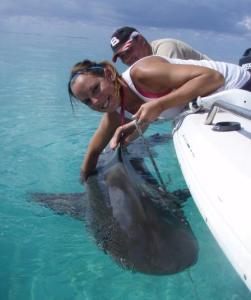
I went to Hermanus, South Africa to visit her and I met her beautiful new family. She is a mom now and combines that with her career. She took me to her new office and of course… it was a Shark Lab. It is actually one of the most prestigious in the shark research world. It is called the South African Shark Conservancy and their mission is to promoting the conservation & sustainable use of marine resources through research, education & awareness.
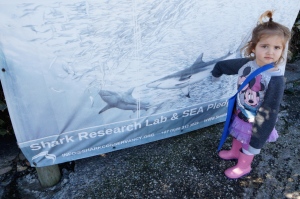
For my surprise, this time Katie was not only working with big species of sharks, but also with small catsharks, like the pyjama shark (Poroderma africanum) and the dark shyshark (Haploblepharus pictus). Although most of the general attention worldwide is focused more on the larger shark species, most shark species are actually small and harmless to people. Actually, the catsharks belong to the largest family of sharks, the Scyliorhinidae, which includes over 150 species.
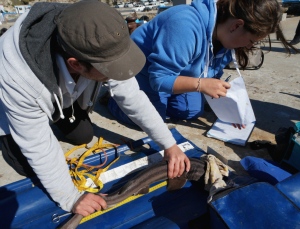
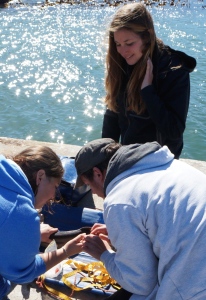
In Katie’s own words: “I believe that small, endemic sharks such as shysharks are an amazing tool for outreach and education purposes. Shysharks are an ideal ambassador for all shark species. They are abundant in inshore South African waters; easily held in captivity/semi-captivity and are completely harmless to humans. This makes them perfect to use for educational and outreach purposes. They can be seen, touched and held, even by small children, acting as a unique way to shift the common negative misconceptions of sharks.”
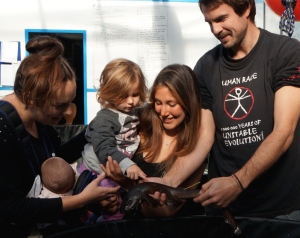
“Sharks and science should be seen, heard, touched, felt and enjoyed” -Katie Gledhill
Katie introduced me her colleague Meaghen McCord Gray, a fisheries scientist who founded this laboratory in 2007. She is also a mom and together with Katie, they showed me that there are no valid excuses that can stop a truly engaged shark researcher in their endeavour! They, and their awesome team, are changing the bad reputation of sharks showing docile species to kids and general public and at the same time they are terrific mothers. This amazed me and I’m filled with admiration for them and deep gratitude for the great contributions they’ve made to the shark research field. These two girls made me understand, in a short time, that as long as you’ve got passion, faith and are willing the work very hard, you can achieve anything you want.
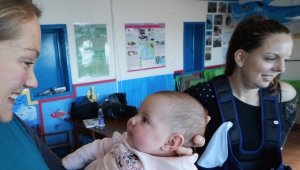
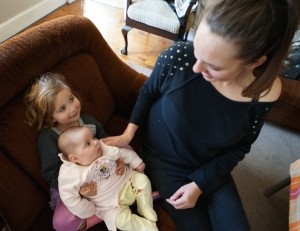 Meaghen McCord Gray and Katie Gledhill – Super moms! | ©Elena Salim Haubold
Meaghen McCord Gray and Katie Gledhill – Super moms! | ©Elena Salim Haubold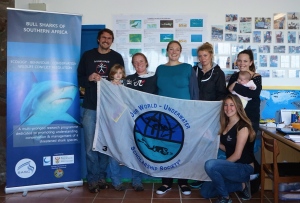
The laboratory is located is a beautiful setting in front of the ocean in the city of Hermanus, a small picturesque town famous for southern right whale watching. There are daily tours to see these whales from a close perspective and some interns from the laboratory head out each day to collect data and take pictures for the Marine Ecology Research Programme (MERP). They allowed me to go with them for one morning and I had the opportunity of seeing whales mating! It was a splendid spectacle! If you want to join them or would like more information, please visit their webpage: www.sharkconservancy.org
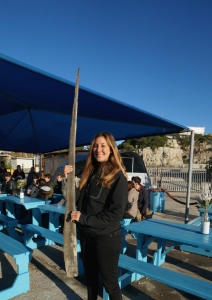
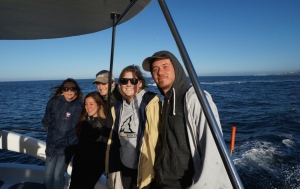
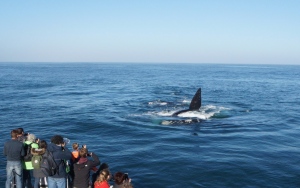
Keep inspiring people & rocking the shark research world girls!